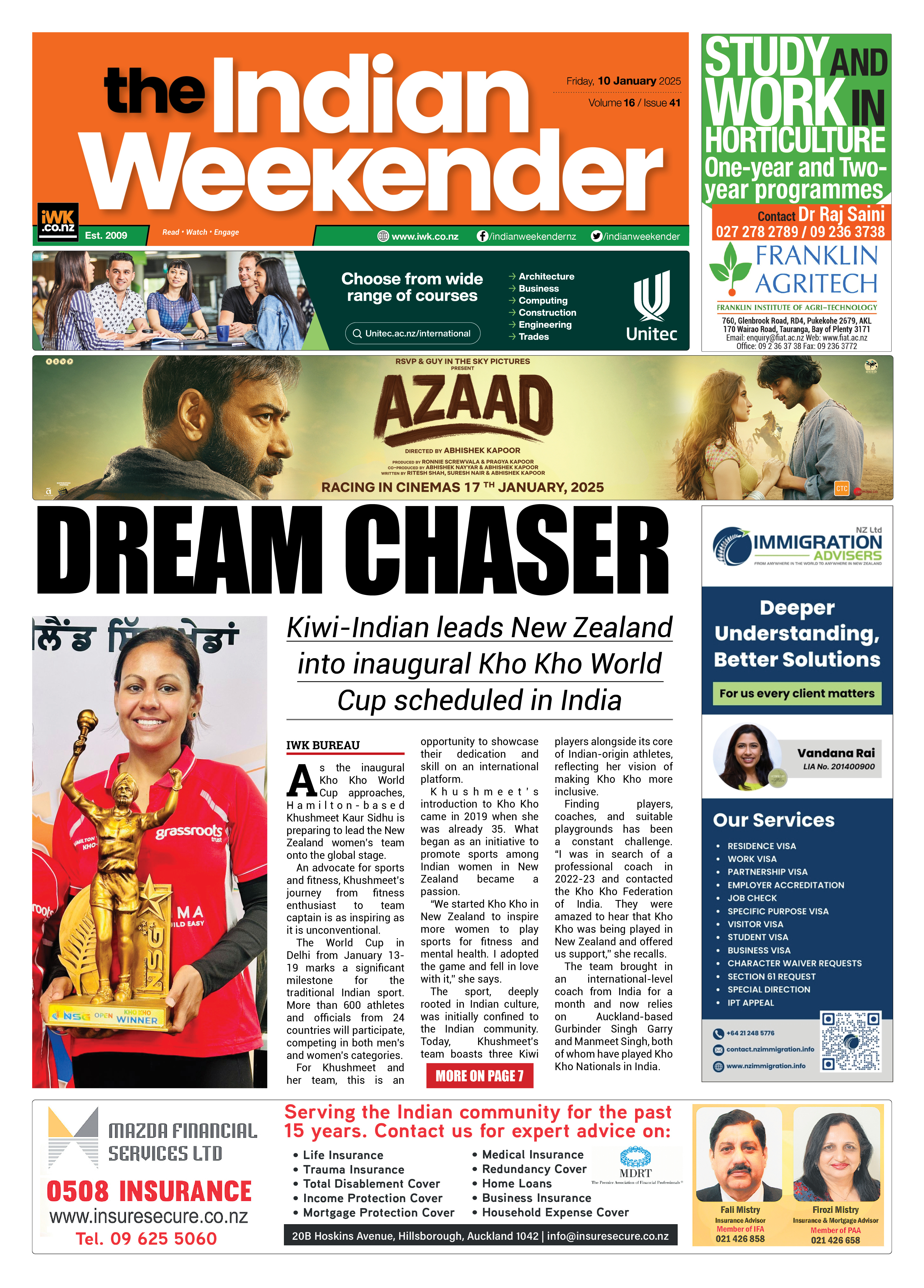Health NZ Drops Tool That Factored In Ethnicity For Waitlists

Health NZ will stop using an equity adjustor tool that prioritised ethnicity as one of five factors in non-urgent surgical waitlists after a review found it was "legally and ethically justifiable" but didn't follow "best practice".
The report, released to RNZ, recommended the tool continue to be used in the hospitals it's already been rolled out in, but under strict conditions and on the basis improvements are made.
It also recommended no other hospitals adopt the algorithm for prioritising non-urgent surgical waitlists until a national strategy is designed and implemented.
However, the decision has been made to stop using it, which is supported by Health Minister Shane Reti.
"As I made clear last year, clinical decisions should be made on the basis of health need first," Reti told RNZ.
"I supported the decision to review the tool and am aware of the findings. This government will continue to drive better outcomes for communities with high health needs by improving our overall health system."
Health NZ told RNZ it agreed with all the recommendations in the report "except that the tools should continue to be used while evolved".
"Health NZ considers a fundamental relook is required, not a simple evolution of the tools that the evaluation found were not robust."
A spokesperson said Health NZ would look into the possibility of adopting a new prioritisation tool across the whole of the health system - but no decisions had been made.
"We will commence a new process to robustly look at waitlist prioritisation for Health NZ overall. Should any new tool(s) or processes be developed, this will be done in line with the findings of the evaluation and would be rigorously assessed.
"No decision to adopt a new tool or process has been taken at this time. We will take the time we need to undertake robust assessment work on whether a new tool should be put in place."
The Southern region and Northland have already stopped using their tool and Auckland will now do so, and revert back to pre-existing waitlist management systems.
Last August an expert panel, chaired by Professor Rod Jackson, was set up to investigate the equity adjustor tool after a Newstalk ZB article with the headline "Auckland surgeons must now consider ethnicity in prioritising patients for operations - some are not happy" turned into a heated political debate at Parliament.
It centred on an algorithm first introduced in Auckland - and later modified - to decide the order in which people receive non-urgent surgery.
It used five factors: clinical priority, time on the waitlist, geographic location, deprivation level, and ethnicity. "Several surgeons" were upset by it, the article said, quoting one unnamed male who was "disgusted" ethnicity was being considered.
In the face of growing public and political backlash, then-Prime Minister Chris Hipkins instructed his Health Minister Ayesha Verrall to investigate, and in the meantime halt any further rollout of the tool while a review was conducted.
RNZ can now report the findings of that review, which was commissioned by Health NZ's chief executive in June last year.
While it was the Auckland tool - subsequently expanded into the Northland Te Tai Tokerau region - that caught headlines, a similar tool was developed in the Southern district too. Both were reviewed by the panel.
The report concluded "pro-equity interventions, such as algorithm tools, are legally and ethically justifiable in the context of demonstrable inequities, and further that Health NZ has an obligation to act to achieve equitable health outcomes" for New Zealanders.
However, the panel said the tools implemented in the Northern region and Southern district "were not developed in a manner consistent with algorithm best practice".
The panel said the Covid-19 environment of rapidly testing new tools "and an urgency to address worsening inequities in a number of areas of planned care" contributed to that.
The review was also unable to determine "whether the tools were effective at reducing inequities within the parameters used in the tool".
This is because the panel could not assess the causal effectiveness of the algorithm; there was no data collected during the development or deployment of the tool; and quantifying other factors such as waitlists, surgical need and systemic barriers to accessing healthcare proved challenging.
Ultimately, the review was unable to say how effective the equity tool was and whether it caused any potential harms.
The review considered harms including denial of care or treatment, lesser standard of care, death, worsening of condition, pain or distress due to longer waiting times.
"While reordering of the waiting lists did occur, likely changing the distribution of waiting times and therefore potential harms, the panel was unable to make any assessment of the impact of the tool on individuals or groups in terms of potential or actual harms.
"There was no evidence of denial of care or lesser standard of care occuring," the review said.
The conclusion of the panel was that "neither equity adjuster tool was developed according to best practice algorithm development."
"This means the tools have the potential to be ineffective in addressing specific equity parameters, and may alternatively have potential to introduce risk, although the panel did not find evidence of harm."
It was noted the staff and districts involved in using the equity tools did so with "strong purpose and rationale to address systemic drivers of inequitable outcomes" under conditions of urgency created by the Covid pandemic.
Six recommendations were set out by the panel as part of its report to the minister of Health:
- Action on demonstrated health inequities is legally and ethically justifiable
- A consistent planned care action plan must be developed and mandated
- The action plan must address unacceptable variation in receipt of planned care
- Development and implementation must consider the right team and approach, including specific expertise such as Māori and Pacific epidemiologists and approaches grounded in kaupapa Māori theory alongside Māori and Pacific clinicians
- Until then (and subject to conditions), the current tool should continue
- Co-benefits of equity interventions should be recognised and measured
Although outside of the scope of the review, the panel also considered alternative interventions for reducing waiting list inequities.
These included standardisation of waiting lists, pooling to reduce variations in districts, a singular focus on those waiting over 365 days, and earlier support given to groups of people with demonstrably longer waiting times.
The review made it clear "inequities are present at each stage of the planned care pathway" and the interventions the Northern and Southern clinical teams implemented were designed with that in mind.
A briefing on the ethics of factoring equity into clinical priorities was also provided. The authors of that briefing, Doctor Monique Jonas and Doctor Dana Wensley, noted, "our conclusion is that an equity adjustor is not only ethically acceptable, but it is also ethically required in the context of Aotearoa's New Zealand's current health statistics".
"We note that the equity adjustor operates solely within the context of access to elective surgical procedures. This 'ambulance at the bottom of the cliff' method of addressing health inequities can be critiqued for failing to address the wider systemic causes of the inequities - one of which is inherent racism within the health system that fails to observe and give effect to the obligations to Māori as partners under Te Tiriti o Waitangi".
The authors concluded, "reducing health inequities must be a core goal of any government moving forward, and it would be unethical not to consider how an equity adjustor might be used to facilitate equitable provision of healthcare services specficially in relation to the allocation of elective surgspecificallyery."
The background
During Covid-19 medical professionals in Auckland identified that Māori and Pasifika were disproportionately waiting for surgery compared with other population groups and sought to fix it when operating theatres were back up and running after the 2020 lockdowns.
All the health data pointed to ethnicity being a significant factor, so alongside clinical need - how urgently someone requires surgery - Auckland hospitals started working its way through waitlists using those two criteria for routine surgeries.
When doctors decide who should be front of the queue, everyone is first and foremost put into a clinical priority category of urgent, semi-urgent, or routine.
When clinical need and ethnicity were the only criteria being used in 2021 and 2022, there was some pushback from the medical profession that social deprivation and geographical location also needed to be included.
That feedback was taken onboard and the adjustor tool was expanded to include social deprivation and geographical location, and a fifth factor, time spent on the waitlist.
Clinical need remained the first consideration, however, and doctors on the frontline continued to fine-tune the tool by making their own decisions based on patient need.
At the time the issue blew up in public, Hipkins made it clear there was evidence Māori, Pasifika, rural people, and those in low-income communities have had to wait longer for clinical care than others and have been discriminated against.
While he acknowledged Te Whatu Ora had worked to address that, he asked Verrall to look at it to make sure the discrimination that already existed hadn't been replaced by another discriminatory tool.
National and ACT, both strongly opposed to ethnicity being a prioritisation, said they would remove it if in government, and ACT leader David Seymour called out the Labour government for treating New Zealanders differently depending on who their ancestors are.
Life expectancy and mortality rates paint a bleak picture for Māori and Pasifika in New Zealand with European or other males having a life expectancy of 81 years compared with 73.4 years for Māori and 75.4 years for Pacific males.
At the time the National and ACT parties seized on the Newstalk ZB article and National Party health spokesperson Shane Reti told reporters he knew a number of clinicians were deeply unhappy with the system, and he shared their concerns.
"For surgical waiting lists, clinical decision-making should only be based on health need. That is the issue I've got, that is the issue clinicians have raised, and I agree with them."
His leader Christopher Luxon was also arguing "health need" was the only consideration. He said he did not care the measure had been designed by clinicians, and on being told the Royal Australasian College of Surgeons supported the tool, said it was just a difference of opinion.




